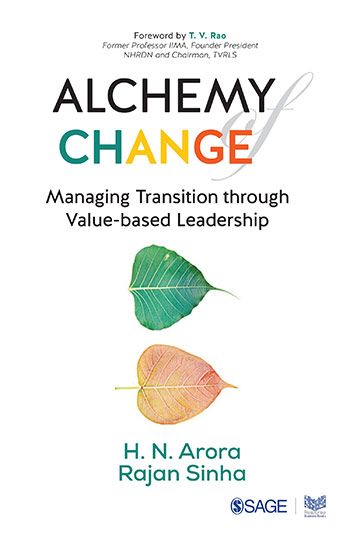The Gita teaches you to be truthful, refrain from criticism and manage your emotions wisely.

In verse 1–3 of chapter XVI of The Gita, Sri Krishna has given 26 divine attributes, ethical and moral values which make us human and are the means of discovering freedom.
 Fearlessness: There are many things we fear, particularly the future; or the fear could be centred on some loss -- loss of life, of power, possessions, relationships and so on. Fear is a product of our own state of insecurity or imagined inadequacy. Behind the emotion of fear, there is always a thought, which we are not able to discover due to our ignorance. When we gradually remove the ignorance through spiritual evolution, there is knowledge -- there is fearlessness.
Fearlessness: There are many things we fear, particularly the future; or the fear could be centred on some loss -- loss of life, of power, possessions, relationships and so on. Fear is a product of our own state of insecurity or imagined inadequacy. Behind the emotion of fear, there is always a thought, which we are not able to discover due to our ignorance. When we gradually remove the ignorance through spiritual evolution, there is knowledge -- there is fearlessness.
Purity of mind: It means cleanliness in our interactions. This cleanliness is possible when we are free from deceit, cheating and falsehood in our thinking and have honest intentions and purity of heart. Inner purity enables us to see purity in everyone and generates love, respect, togetherness and good interpersonal relationships.
Commitment to the pursuit of knowledge: Devotion to knowledge is a positive way to persuade the mind to leave its low temptations. To assimilate our own knowledge, which is very much within ourselves, we have to contemplate with mastery over the senses. A mind, thus awakened to the serene joys of the self, will make us a perfect human being.
Giving: It is a deep-rooted cultural value, born out of the capacity to restrain our instincts of acquisition and replace it with the spirit of sacrifice. Giving what is ours without ego, that is, giving in such a way that the person who receives is happy and does not in any way feel small or obligated, is real giving. Charity develops the capacity to detach ourselves from the wealth we possess and gives us an opportunity to serve.
Self-control: This is control at the level of sense organs and organs of action. To tune the mind to the self, we need a subtle energy, which we can discover within ourselves only when we control our sense excesses. This makes us free, powerful and influential.
Sacrifice: It refers to performing daily rituals such as prayer, which help us control the sense organs and take action that is based on dharma (duty), performed without expectation of reward. Doing what is required to be done for a cause, without selfishness, begets bliss.
Self-learning: Regular studies, coupled with understanding and regular, practice give us an atmosphere wherein we can spiritually grow and have the courage to live in self-control of the sense organs, leading to inner wisdom and capacity for self-exploration to understand the real.
Self-austerity: It is reducing our indulgences in the outside world, taking ups, downs, pleasure and pain as just natural laws, gaining more and more energy within ourselves and applying the new-found energy for the purpose of self-development, blissful living and welfare of others.
Straightforwardness: This refers to alignment between the mind, the word and the action. Crookedness in thought, emotions and general conduct develops in us a split personality. Straightforwardness is selfless but purposeful truthfulness and simplicity.
Non-injury: A hurtful act can be physical, verbal or mental, according to the means used and, thus, there has to be absence of hurt or harmlessness in all our actions. Our motives have to be pure and clean and mind trained to be free of harmful intent or violent feeling in thought, word or deed towards all living beings.
Truth: It is only due to fear of facing certain facts about ourselves that we lie. This makes us weak, creating a self-destructive influence and a split in our personality. One is advised to say not only what is truthful but also what is pleasing and beneficial. Though there must be no deceit or ulterior motive in telling the truth, but it must be cushioned so that it does not hurt, but must always be told. While it is important to say what is pleasant, it should not be at the cost of what is true.
Controlling anger: Anger comes from anguish arising from unfulfilled expectations, hurt ego, criticism and discomfort. All of these are controllable and we should have the capacity to check at the right time, waves of anger as they mount so that we do not manifest anger in our actions and damage others and ourselves.
Self-denial: It is basically the spirit of renunciation, not physically renouncing the world but keeping away feelings of ownership and attachment. This refers to performing action as a thing to be done for the love of inner wisdom and purification, leading to self-development. This involves a feeling of surrender where we operate with the consciousness that the work is in our hands but not necessarily the results.
Peacefulness: There is a sequential order strictly followed in the development of thought. If we are conscious of truth, harming none, keeping an even temper, in a spirit of renunciation, we shall come to experience peace and equanimity even in critical situations. Getting worked up detracts us from efficiency while a peaceful mind can successfully keep our inward balance and intellectual poise even in the midst of outrageous circumstances. Peace is resolution of the mind and is possible only if there is no self-judgement. If we stop making judgement on the basis of our mind and learn to accept the facts, we find there is peace.
Refrain from criticism: We normally criticize others because we are not happy within ourselves. Such behaviour is ordered by the personality behind it and is often a way of trying to handle jealousy. Criticism deprives us of the opportunity for self-correction, since, instead of improving ourselves, we try to cover up our own failures and resort to fault-finding in others. We should develop such an inward harmony that our speech should echo the fragrance of sincerity, devotion and love, and we should stay with ourselves to look at the problem that is creating pressure for us to talk about someone else.
Compassion: It is an expression of love towards another being who is in pain of any kind. Our acting upon in such a situation is the expression of love resulting from empathy with the pain of another. It is helping others without their asking for it -- it is caring. Compassion is the feeling of tenderness towards all kinds of living beings and love alone can discover an infinite amount of tenderness in us to sweeten our lives. Love is a consciousness, not just an intense feeling for one person or object or a passion. Since love flows from truth, it is selfless as well as self-fulfilling.
Absence of ardent longing: It is about the inherent power in all of us to appreciate objects and sense enjoyment, without a longing arising in us. Even if a fancy occurs, we do not respond to it by way of controlling our sense organs from extreme indulgence. We do our worldly duty without greed or attachment to either physical comforts or money, remaining in self-control without endless hunger amounting to greed.
Softness: If we have established ourselves in the noble qualities, we shall be able to bring forth beauty and harmony in our interface with the world outside. Our behaviour will be gentle and soft and people shall be able to talk to us freely, happily and without fear. Softness implies accommodation, accepting other's limitations and understanding its source.
Modesty: This is particular kind of shyness -- shying away from praise and from extolling our own glories -- remaining objective and not flattering oneself. Modesty retains harmony of the social fabric around us while excessive unconventionalism discomforts.
Freedom from restlessness: Restlessness of our mind gets reflected in our physical movements, the body shadowing the condition of the mind. A constant restlessness or a sudden outburst of activity or immodest shaking of body are the expressions of agitation in our mind. We need to cultivate a steady character and a purposeful personality through the knowledge of and mastery over self.
Energy: This is not the mere physical glow or shine of our skin but refers to inner brilliance. It is the capacity to face challenges with confidence, and the ability to change and influence the thinking of others. We can serve all and discover a sense of fulfilment through the vigour, spiritedness and abundant energy, achieved by the brilliance of our intellect, the serene poise in our activities, and the expression of love for all, emerging from the innermost depths of our being.
Forgiveness: It is the capacity to face the most powerful opposition and provoking situation with an unruffled serenity. It is composure where there is no change within us even when we are put to physical or mental inconvenience or when insulted or injured by others. In such a situation, anger does not arise and we get an opportunity to understand the other person. Unless we have the readiness to accommodate and allow the person to behave as he is, there is no way of understanding him.
Fortitude: This is the will to survive adversity and sustain our good qualities when the circumstances are unfavourable and the body and sense organs are tired or in pain. The attitude to stick to our guns and not mind the pain is fortitude. The sacred energy from which fortitude trickles down comes from strength of faith, conviction in the goal, consistency of purpose, vivid perception of the ideal and a bold spirit of sacrifice. This sacred energy gives us the capacity to happily put up with pain and unfavourable circumstances.
Purity: This refers to both the inner and outer cleanliness and purity. External cleanliness and purity of environment is also an important discipline, as it helps create a healthy frame of mind. Inner cleanliness is a mental disposition involving purity of thoughts and motives and is the opposite of one assailed by emotions such as hatred. We have to look into our own mind and as the emotions of hatred, enmity, deceit, likes or dislikes arise, we have to create the opposite attitude and develop a mind that is predominantly pure.
Non-hatred: This includes not only absence of hurting or harming but also absence of even a thought of hurting another. Just as we will never have any idea of injuring ourselves, we, in our recognition of the oneness in all living creatures, must come to feel that to injure anyone is to injure ourselves.
Absence of pride: While a certain amount of self-respect is necessary, demanding respect from others is what is negated here. Working without hankering for fame or recognition is true work. It is about renouncing our over-exaggerated pride and notion of self-honour.

Excerpted from Alchemy Of Change: Managing Transition Through Value-Based Leadership by H N Arora and Rajan Sinha, with the kind permission of the publishers, Sage Publications India Pvt Ltd.










